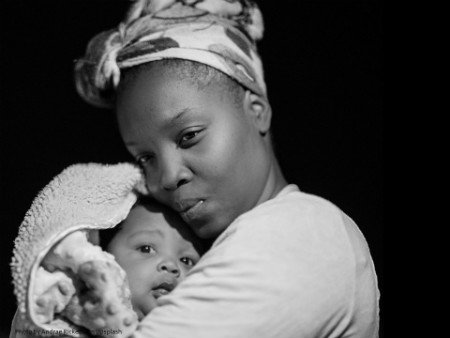Bipolar disorder (types I and II) affect up to 5% of the population in the United States. As the onset of this condition typically occurs during or before the reproductive years, the management of bipolar disorder in women is often complicated by pregnancy. There are concerns regarding fetal exposure to medication, the impact of untreated maternal illness, and data demonstrating that women are at increased risk for relapse during the postpartum period.
Lithium is an important treatment option for women with bipolar disorder, and the topic of lithium use during breastfeeding is one that raises widespread concern. The American Academy of Pediatrics classifies lithium under “Drugs That Have Been Associated With Significant Effects on Some Nursing Infants and Should Be Given to Nursing Mothers With Caution”.
Aside from concern about infant exposure to lithium, many clinicians emphasize the risk to maternal mood posed by sleep disturbance. Although it has not been well studied in this population, it is believed that sleep deprivation can trigger mood episodes in postpartum women with bipolar disorder. Formula feeding enables others to participate in nighttime feeds and may protect a mother’s sleep. As a result, clinicians often discourage breastfeeding to mothers who are using lithium. However, for many women, it is important to have the experience of breastfeeding.
A woman who is stable on lithium but wants to breastfeed has a number of options as she approaches the postpartum period:
After delivery, a woman may choose to discontinue lithium or switch to a different mood stabilizer. From a clinical standpoint, however, there are women for whom discontinuing lithium or switching to another mood stabilizer is not a viable option. Changing or stopping medications at a time known for a high risk of relapse is not advisable for many women with serious illness. Furthermore, a woman who responds to lithium may not respond to another mood stabilizer. Additionally, for many mood stabilizers, safety data for breastfeeding are lacking. There are some limited data available for anticonvulsants, but even less data for atypical antipsychotic medications.
A woman taking lithium in the postpartum period who does plan to nurse may choose either to breastfeed exclusively or to compromise by partially breastfeeding and partially formula feeding. Viguera and colleagues note that whether a woman on lithium is breastfeeding exclusively or partially, there are a number of factors that she must consider.
Breastfeeding might be a reasonable option if the following criteria are in place:
- Stable maternal mood
- Lithium monotherapy (or a simple medication regimen)
- A healthy, full-term infant
- Adherence to infant monitoring guidelines (monitoring lithium level, TSH, BUN, and creatinine immediately postpartum, at 4-6 weeks of age, and then every 8-12 weeks)
- A collaborative pediatrician who is supportive of the mother’s decision and who understands the importance of infant monitoring
For women who may benefit from lithium in the postpartum period and who want to breastfeed, the concerns about lithium must be weighed alongside a woman’s treatment options, preferences, and her individual situation. Women are encouraged to discuss these decisions with their health care providers in order to determine whether or not taking lithium while nursing is an appropriate option and to ensure that they have a supportive team in place.
Suzanna Fowler, BS
Marlene Freeman, MD
Viguera AC, Newport DJ, Ritchie J et al. Lithium in Breastmilk and Nursing Infants: Clinical Implications. Am J Psychiatry. 2007: 164(2): 342-345.
Yonkers KA, Wisner KL, Stowe Z, et al. Management of Bipolar Disorder During Pregnancy and the Postpartum Period. Am J Psychiatry. 2004: 161(4): 608-620.







Lithium is often the frequent choice of mood stabilizer for women with bipolar disorders. if a woman who is breastfeeding while on lithium, I think it is worthwhile to consider whether the complete dose can be given as a single dose and to avoid the feed during the peak levels.
In developing countries, where the infections are rampant, the monitoring needs to be more frequent and stringent.
i am not sure if I am experiencing postpartum depression I found great comfort in all of the information, Thank you for being a voice for those who have little or no voice.
Thank you for this article and the very specific recommendations. I’m a psychotherapist for a perinatal mental health agency. We see many postpartum women whose providers simply have them stop breastfeeding if the woman is on Lithium (or many other psychotropics which would be in some cases compatible with breastfeeding). Prescribers often fail to consider the benefits of breastfeeding on mother and baby. Misinformation and lack of education is also a big factor. Therefore, articles like yours really help. Thank you!
Thank you for this excellent article. I regret not having seen it a year ago when I was beeastfeeding my baby boy while taking lithium, avoiding feeding at peak med times , taking baby for bloods etc etc. Unfortunately tho the whole thing got a bit too stressful and I had something of a relapse. Had to wean baby fully at about 2.5 months and increase Li dose , get more sleep etc. As a doctor myself I found this article very useful especially in the context of my situation.
what a clear article -as someone who is a general adult psychiatrist in the uk